Search Images
Browse Content (p. 1103)
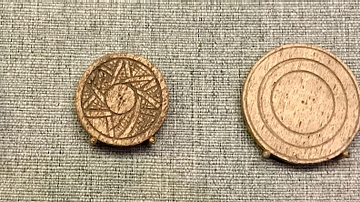
Image
Viking Game Pieces
Decorative game pieces may have been used to play checkers or backgammon, two games known in Viking Age Scandinavia through trade with the Middle East. These pieces are made from wood and date to c. 800-1000 CE. They are Norwegian in provenance...
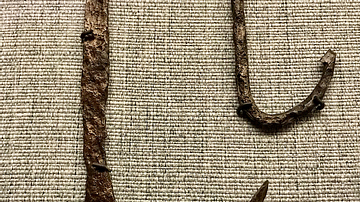
Image
Viking Iron Fishing Hooks
The Vikings did not use fishing reels or poles. Instead, they tied hooks to a fishing line made from sheep, cow, or walrus intestines, then pulled the fish up by hand. On a small rowing boat out on the open ocean, this was a very dangerous...

Image
Whitby Abbey
Whitby Abbey, North Yorkshire, England. Founded in the 7th century CE.
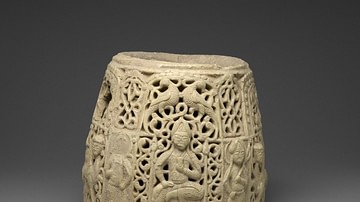
Image
Seljuk Water Jug
Made of unglazed ceramic, this top portion of a water jug depicts two Seljuk guards flanking a seated figure, possibly a sultan. Dates to the late 12th to early 13 century CE. Measures approximately 30 x 36 x 36 cm. (Brooklyn Museum, New...
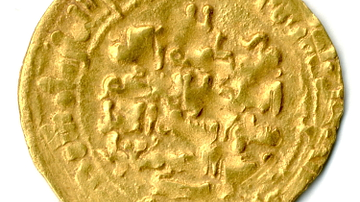
Image
Dinar of Tughril
Pictured here is a dinar of Tughril Bey (r. 1040-1063 CE). It measures 2.2 cm in diameter and weighs 2.8 grams. It was minted between 1052-1053 CE in Nishapur, in present-day Iran. (Metropolitan Museum of Art, New York)
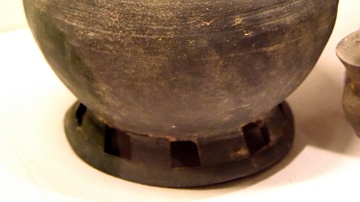
Image
Korean Stoneware Ritual Vessel
William Gowland visited Korea in 1884 CE and was struck by the similarities between early Korean and Japanese tombs. The wealthy and powerful in both lands shared a taste for luxury and precious objects. Stoneware. From Korea. 250-600 CE...
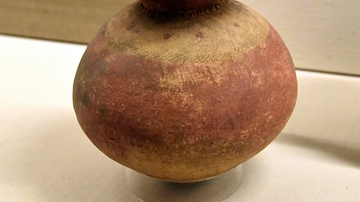
Image
Yayoi Jar with Beaded Neck
This jar has small beads around the neck and is decorated with red pigment and cord impressions. As regional rulers became more powerful in the Yayoi period, they demanded higher quality ceramics. Warfare also became more common, and in Western...
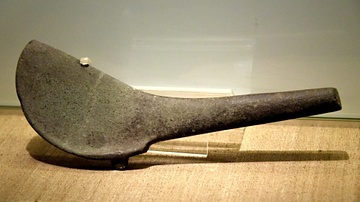
Image
Japanese Blade-Shaped Object
About 60 similar examples were have been unearthed in Japan, from Southern Hokkaido and Northern Tohoku region. They were made between 2500 to 500 BCE. They may have been used in rituals but the details are unknown. Stone. From Japan. 2500-500...
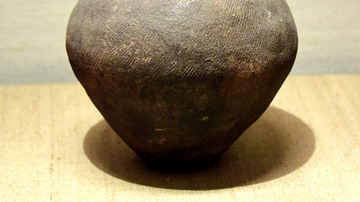
Image
Jomon Ritual Pottery Vessel
These ancient ceramics are decorated with cord markings. They gave the Jomon period, (13,00-500 BCE) its name; Jomon means "cord-marked". A stick was wrapped with braided cord and then rolled over the surface of the vessels to decorate them...
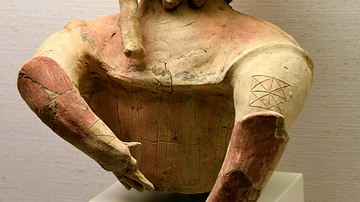
Image
Haniwa Warrior with a Tattoo
This is the top half of what was originally a complete figure. The warrior's face is partly painted red, he wears his hair in plaits (one is missing), and the protective gauntlet on his forearms may be part of an armour suit. From the 400s...